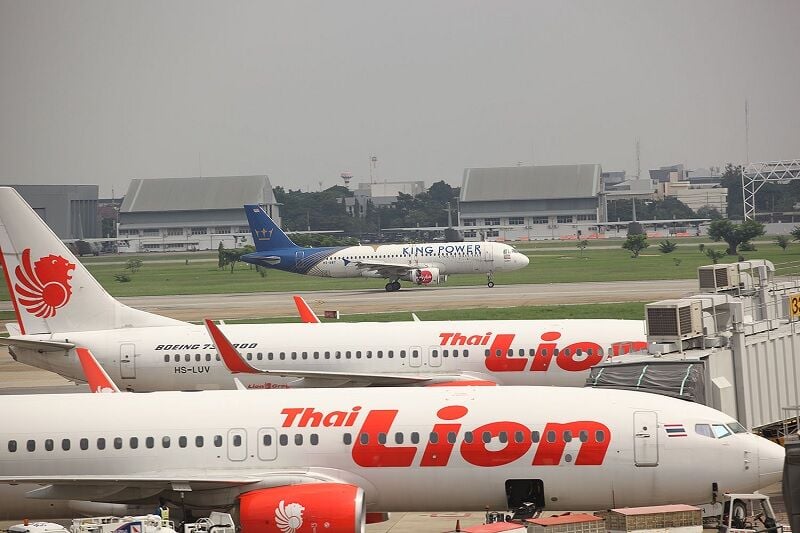Thai Lion Air expands fleet, aims for 7 million passengers

Thai Lion Air is expanding its fleet and reinstating routes in response to rising tourism demand, aiming for 6-7 million passengers and achieving its first post-pandemic profit.
Thai Lion Air chief Nuntaporn Komonsittivate made known that domestic and international routes have recovered by 60%, supported by an increase in operational jets to 20 from 11 in recent years.
The average load factor for domestic routes is projected at 85%, while international routes are expected to see a 75% load factor this year.
New destinations added this year include Penang, Malaysia and Ahmedabad, India.
In the second half of the year, Thai Lion Air intends to incorporate five more aircraft, including Boeing 737-800 and Boeing 737-900ER models. This expansion is expected to facilitate new routes to Amritsar, India, and Hong Kong.
Additionally, the airline plans to increase flights to Japan via Taipei, direct flights to cities in China, and enhance domestic routes, although these will operate at 50-60% capacity compared to 2019.
Nuntaporn mentioned that securing a portion of the 7,000-seat quota to India from the Civil Aviation Authority of Thailand could lead to increased flights to Bangalore and Mumbai.
“As Thailand and other Asian destinations have been active in launching tourism campaigns, this high season should be bustling.”
The visa-free initiative has significantly boosted the number of Chinese and Indian travellers, resulting in strong load factors on these routes, with more Thais also showing interest in visiting China.
However, potential challenges include high household debt and sluggish spending power, which could influence travel decisions.
In 2019, Thai Lion Air served 13-14 million passengers using 35 aircraft. Before the pandemic, China was its primary destination with 22 routes, now reduced to six.
Five additional aircraft are expected next year, which would expand the fleet to 30. This increase in capacity may allow the resumption of services to Japanese cities such as Fukuoka, Nagoya, and Osaka, which were suspended during the pandemic.
We want to get our fleet back to the same size as 2019 as soon as possible, Nuntaporn added.
The airline remains committed to operating at Don Mueang International Airport with no plans to shift to U-Tapao Airport as previously considered.
As part of the Airlines Association of Thailand, Thai Lion Air and other members are preparing to propose a new method to the Revenue Department for collecting jet fuel excise tax, reported Bangkok Post.
Latest Thailand News
Follow The Thaiger on Google News:


























